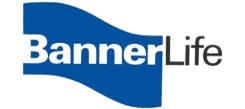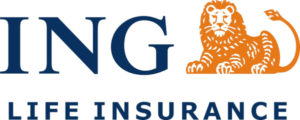Some people believe that they are uninsurable— or at least, only insurable at very high rates— if they are shopping for life insurance with high cholesterol.
Others simply never consider the fact that it affects life insurance rates in the first place.
But the truth is that it does, and every life insurance provider follows their own set of rules for covering people with high cholesterol levels.
Though this is obviously a bit perplexing, the good news is that most people with high cholesterol can get a good life insurance policy at a decent rate.
3 Best Life Insurance Providers For High Cholesterol
We work with 30 different companies, but for your convenience, we’ve narrowed it down to the three best ones for individuals with high cholesterol. Take a look:
Banner Life Insurance

Banner Life offers people Preferred Plus rates if you have a cholesterol ratio of no more than 4.5, with a total level of no more than 300.
Those with ratios over 4.5 but under 5.5 can qualify for Preferred rates, while those under 6.5 are eligible for Standard Plus.
Standard rates are offered to those with high ratios that are still under 8.0, with total cholesterol levels still below 300.
ING Reliastar

ING Reliastar has specific rules fo each gender.
For example, men with ratios under 5.0 (with total cholesterol below 300) can qualify for their Preferred Plus rates, while women under 4.5 are eligible for the same rates.
The gap closes a bit for their Preferred rates, with 5.5 being the limit for men and 5.2 being the limit for women. Those with ratios no higher than 6 can qualify for their Standard ratings.
Prudential

People with ratios of no more than 5 are eligible for Prudential’s Preferred Plus rates, while those with a ratio of no more than 6 will get Preferred.
Those with ratios no higher than 7 are eligible for Standard Plus.
This company allows total cholesterol levels for all of their health classes to go up to 300.
For many, Prudential is the best choice since they are less stringent with their guidelines.
What Does ‘High Cholesterol’ Actually Mean?
Your doctor may have already explained this to you, but it is easy to forget the details. Basically, there are two kinds of cholesterol in your body— LDL, the “bad” cholesterol, and HDL, the “good” kind.
When you are diagnosed with “high cholesterol”, you are really being told that you have high levels of LDL cholesterol, and a high cholesterol ratio.
This number is obtained by dividing your total cholesterol level by the HDL amount, with ideal results being between ratios of 1 and 5 (according to the American Heart Association).
Having high cholesterol puts you at greater risk for a variety of illnesses, mostly coronary-related. This is why insurance rates can be higher for people who have been diagnosed with high cholesterol.
Nevertheless, it is important to know what exactly insurance providers are looking at in the first place.
High Cholesterol and Life Insurance Companies
Just about every insurance company needs two numbers from you— your total cholesterol level and your total/HDL ratio number.
By looking at these numbers, they determine (according to their own guidelines) what kind of insurance rates you are eligible for.
As you will see below, each company has its own specific rules.
However, the general guidelines are that in order to get the best rates, your total cholesterol level has to be below 250 or 300, and your ratio has to be less than 5 or 5.5.
Other rates like Preferred and Regular allow for more flexibility.
You can start looking at different rates now using our online quote tool, but in the meantime, keep reading to learn more about different life insurance companies’ guidelines concerning high cholesterol.
Calculating Your Life Insurance Needs
It doesn’t matter which company you choose, if you don’t buy a large enough plan, your family will be stuck with bills.
Luckily, doing some quick math can ensure this doesn’t happen.
The first numbers that you should crunch are any bills you have outstanding. Once you have all of those numbers, add them up, this is your starting point.
After this, grab your paycheck, and let’s multiply it.
If you’re the primary source of income, and you have several people that rely on that salary, then your family will struggle if something were to happen to you, but that’s where your life insurance plan comes in.
It’s important that you understand just how much life insurance coverage your family is going to need.
Not having enough life insurance coverage could leave them with leftover bills and other expenses that they don’t have the money to pay off.
Getting The Lowest Rates with High Cholesterol
There are certain factors you can’t control (such as gender and age), but there are others that you can.
For example, taking steps to reduce your cholesterol levels through regular exercise and a healthy diet can be of great help.
If your doctor recommends that you take medication, the good news is that insurance companies will not penalize you for it.
Not having life insurance can make an already difficult situation a thousand times worse.
As an applicant with high cholesterol, it’s going to create a few hiccups, but it’s still easy to find the perfect plan.

